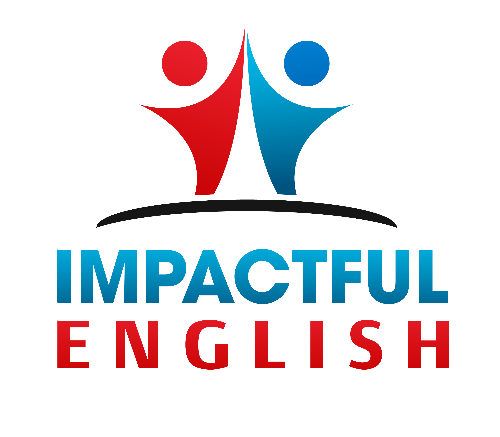Micro Habits to Improve and Quicken Your Emails in English + 45 Expressions
Making small changes and keeping consistent with them can have a powerful impact on the way how you write emails in English.
In this lesson, I propose 4 micro habits with the aim of helping you write more objective, accurate, and quicker emails in English.
When I used to own a Language School, which was located in Brazil, part of my day involved writing emails in Portuguese. Even the most simple emails took ages to write, so I started to look at ways how I could speed the process up while not compromising accuracy.
Below I share what helped me write more effective emails, as well as what is working for my clients. Together with the 4 micro habits, you will also learn a total of 45 expressions for emails in English.
1. Optimize Your Subject Line
Every email that you send should have a clear and objective subject line. This will make your emails stand out and help recipients determine their level of importance.
Here are some subject lines for making requests, scheduling meetings, and sharing information:
Meeting request regarding…
Meeting follow-up needed.
Meeting confirmed for 2nd May at 2 PM.
Follow-up needed regarding…
Important information enclosed…
Important information needed about…
2. Use Grammarly for Appropriate Grammar and Correct Spelling

One way to make sure that your spelling and grammar are accurate when writing emails in English is to take advantage of the app, Grammarly.
When you install the extension, it automatically checks your grammar, punctuation, and spelling on emails and Word documents.
As well as a grammar checker, using Grammarly is an effective way to improve your grammar because it helps you to visualize the mistakes you’re making. So with Grammarly, you can develop your writing skills and get better at grammar simultaneously.
Grammarly offers a free version and is probably enough for what you need, but if you want the extras, you can pay for the premium version. Click this link to check it out. (Disclaimer: Steven is a Grammarly affiliate.)
3. Keep a Database of Previous Emails in English as Templates
You’ll find that a lot of your emails have a similar purpose. So to save you time, I suggest creating a database of email templates that you can consult and then adapt to the topic which you need to write about.
Here’s an example of an email confirming a meeting that you could quickly copy, paste, and adapt:
(Subject Line) Meeting Confirmed Wednesday at 3 PM
Dear all,
I’m letting you know that our next meeting (regarding the second phase of the XYZ project) is confirmed for Wednesday at 3 PM.
Please be prepared to give me an update on the following:
Here’s the online meeting link:
Please let me know if you have any questions and I look forward to seeing you on Wednesday.
Best,
4. Build a Repertoire of Expressions for Emails in English
One thing that has helped me write quicker emails in another language, and something that I’ve passed on to my clients, is to build a repertoire of expressions and then store them somewhere that is easily accessible, like a doc on Google Drive.
When you have this, you can literally copy and paste the ‘skeleton’ of your email and then fill it up with all the other details that you want to include.
Here are some useful expressions that will help kick start your repertoire!
Greeting
I hope all is well.
It was a pleasure meeting you yesterday.
I hope this email finds you well.
Informing
I wanted to let you know that…
I am writing to you with regards to…
This is a quick note about…
Replying to an email
Thank you for your email regarding…
Thank you for getting back to me.
Thank you for your quick reply.
As requested, I am sending you…
As promised, I am sending you…
Apologizing
I apologize for the delay in my response.
My apologies for any inconvenience this may have caused.
My apologies for…
Requesting
If possible, could you send me…
It would be greatly appreciated if you could…
Would you kindly respond back to me by…
Please complete this task by…
Asking questions
Please let me know if I have the green light on this.
Would you please clarify…?
Could you please send me further details regarding…?
Sharing information
I’m sending you a friendly reminder that…
Quick heads up:…
I’m sharing with you some feedback we’ve had on…
Attaching documents
I’ve enclosed the [file name] to this email.
Please see the following attachments.
Here are the documents attached, that we discussed earlier.
Scheduling
Would you be available for a quick meeting on Monday?
Are you free on…?
I’d like to schedule a meeting to finalize… on…
Giving unpleasant news
Due to unforeseen circumstances…
Despite my best efforts, I was unable to…
Unfortunately, I’m unable to…
Pre-closing
Thank you in advance for your help with this.
I would greatly appreciate it if…
I look forward to hearing your ideas about this.
Polite closing
Warm regards,
All the best,
Best,
Take Action
Implement these 4 micro habits to write quicker and more accurate Emails in English:
- Optimize your subject line so that your recipient knows immediately what you are writing to them about.
- Install the Grammarly extension to write more correctly.
- Save time by keeping a database of previous emails as templates for future emails.
- Build a repertoire of English email expressions for rapid email writing and more accuracy.





